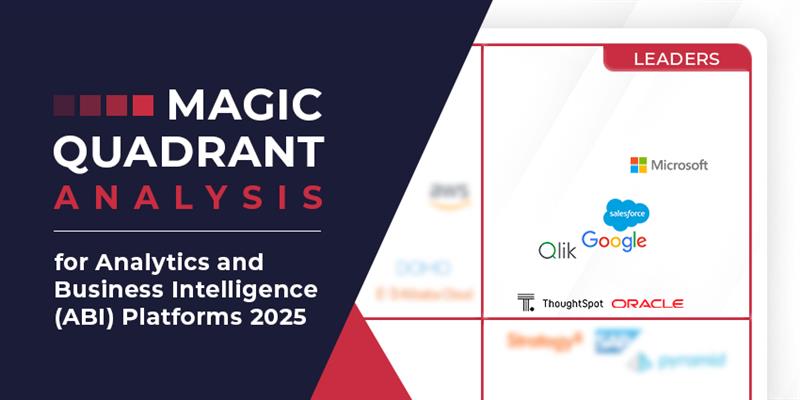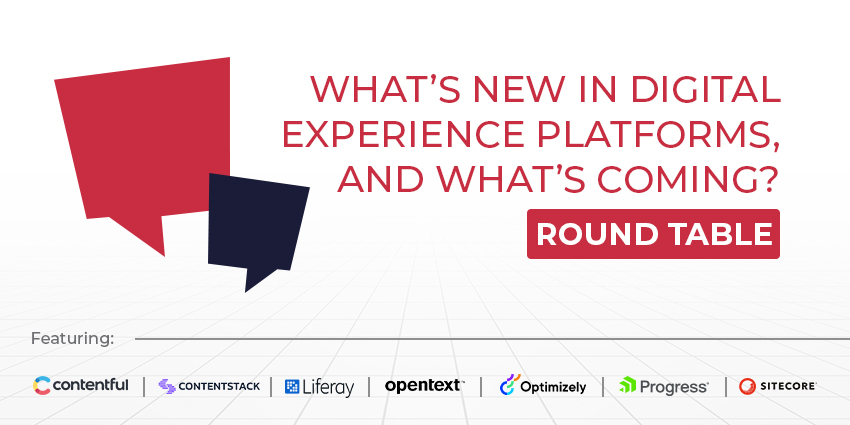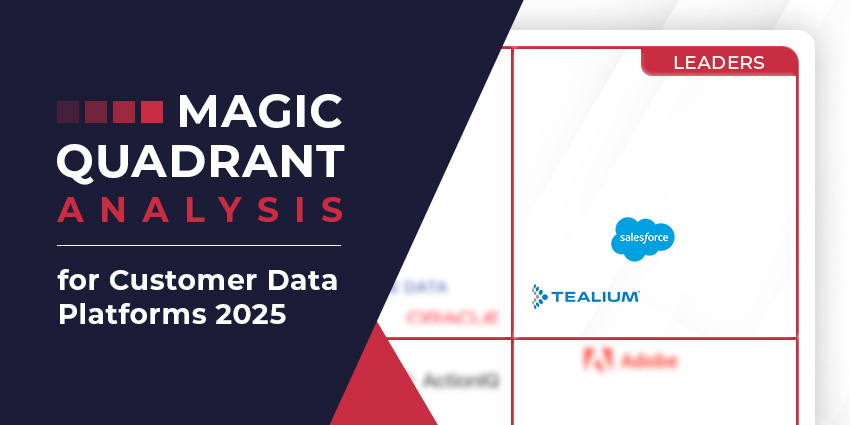As CX decisions become more data-driven, business intelligence (BI) tools that make sense of diverse datasets are coming to the fore. These solutions filter customer data and apply AI to extract insights from the available information. One such tool is IBM Cognos.
Launched in 2006, Cognos Analytics is a web-based application that comprises of several components designed to suit the needs of individual businesses. These components help monitor, analyze, and visualize business metrics and trends.
In recent years, several new capabilities have enriched the platform – such as the Cognos mobile app – lowering time to insight.
Key Features of IBM Cognos Analytics
IBM Cognos Analytics provides organizations with the following features that simplify data analysis.
-
Data Source Integrations
Teams can import data effortlessly into the system, connecting with the IBM suite and many third-party applications. These include spreadsheets, SQL databases, Google BigQuery, Amazon, Redshift, and many other cloud or on-premise systems. Companies then enjoy the flexibility to host and analyze data in an environment compatible with their enterprise ecosystem.
-
Automatic Data Preparation
With AI-assisted data analysis, users spend less time cleaning data, gathering data from numerous sources, adding calculated variables, and building dashboards. As such, companies lower their dependence on IT and data science experts, with IBM professional service teams on hand if they need to call in additional support.
-
Dynamic Dashboards
In minutes, teams can design visually appealing dashboards. Using drag-and-drop datasets, it is possible to create visualizations, dive down for more information, and share insights via email or Slack. The dashboards also highlight essential action items for various departments. For example, the sales team may create a view that brings statistics such as sales numbers, order count, and sales progress to the surface. Multiple stakeholders may work from this dashboard at once.
-
An AI Assistant
Cognos Analytics makes finding trends that impact business decisions easier. Using natural language, teams can ask an AI assistant a question and receive an answer with visualizations. It also pinpoints seasonal trends using time series modeling, which is beneficial for supply chain planning, contact center WFM, and much more.
-
Personalized Reports
The solution offers a variety of ways to depict data, revealing multiple perspectives. It requires no prior training, and any user can drill down to gain insights. Companies can also convert dashboards into personalized reports containing the insights most relevant to stakeholders.
The Benefits of IBM Cognos Analytics
There are many possible benefits of implementing IBM Cognos Analytics. These include:
- A comprehensive report coverage and a cloud hosting environment that makes integrations with databases easier, reduces maintenance expenditures, and increases scalability.
- Quick time to insight, thanks to enhanced enterprise connectivity and flexible authoring.
- Data-driven decision-making, as a result of reports and dashboards that display data in a transparent and easily understandable manner.
- Automatic dashboard updates that adapt the layout of reports as and when data is added, modified, or removed from the system.
- A next generation user interface (UI) that enables users to perform various business intelligence and data exploration tasks simultaneously.
- Simple, custom designs that empower non-technical business leaders to spot critical trends with little training or guidance.
- A secure mobile app, allowing users to spot emerging trends in real-time – no matter their location – facilitating fast action.
- Access to IBM data centers in numerous locations worldwide, allowing users to incorporate third-party data.
- Multilingual features that ensure reports cater to the many languages spoken within global operations.
These benefits hinge on advanced Watson technology, which enables many more capabilities. For example, when building a new report, users can simply type in a handful of keywords, and Watson will use that information to determine which statistics the company could perhaps include.
Such a search works by scanning the data with existing reports – including remarks and headings, among other things – to return search results so that users do not have to trawl through hundreds of reports.
Further, to satisfy the requirement for autonomy in analytics while still maintaining the integrity of the enterprise environment, Cognos Analytics provides business users with the opportunity to upload and analyze data. Indeed, there is no need to recreate an analysis in another separate enterprise BI system. Meanwhile, firms can also combine insights with corporate data managed by IT.
Who Should Use IBM Cognos Analytics?
The solution democratizes BI, making insights available to anyone within the company. As a result, it paves the way for enhanced collaboration and a unified view of CX.
However, it is perhaps best suited to business units generating large amounts of data, whether it is historical or in real-time.
In addition to CX functions, demand and supply managers, vendor managers, finance teams, and many others will benefit from the platform.
Nevertheless, a degree of digital maturity and vast amounts of accessible data is necessary to make the most of Cognos’ sophisticated interface and integration capabilities.
Final Thoughts
Cognos was originally established in 1969 as a business intelligence company in Canada. IBM acquired it in 2007 and launched a rebranded solution while retaining the old name.
Over the decades, IBM Cognos Analytics has steadily evolved – introducing more features, a less technically dense interface, mobile support, and flexible consumption options. As it evolves, the technology offers a more simple and effective way to make sense of company data.
Pricing for Cognos Analytics starts at $10 per user per month, yet on-premise implementation costs may vary.
Discover more about the Watson technology that supports Cognos Analytics by reading our article: Stronger Insights, Greater Efficiencies – IBM Watson







